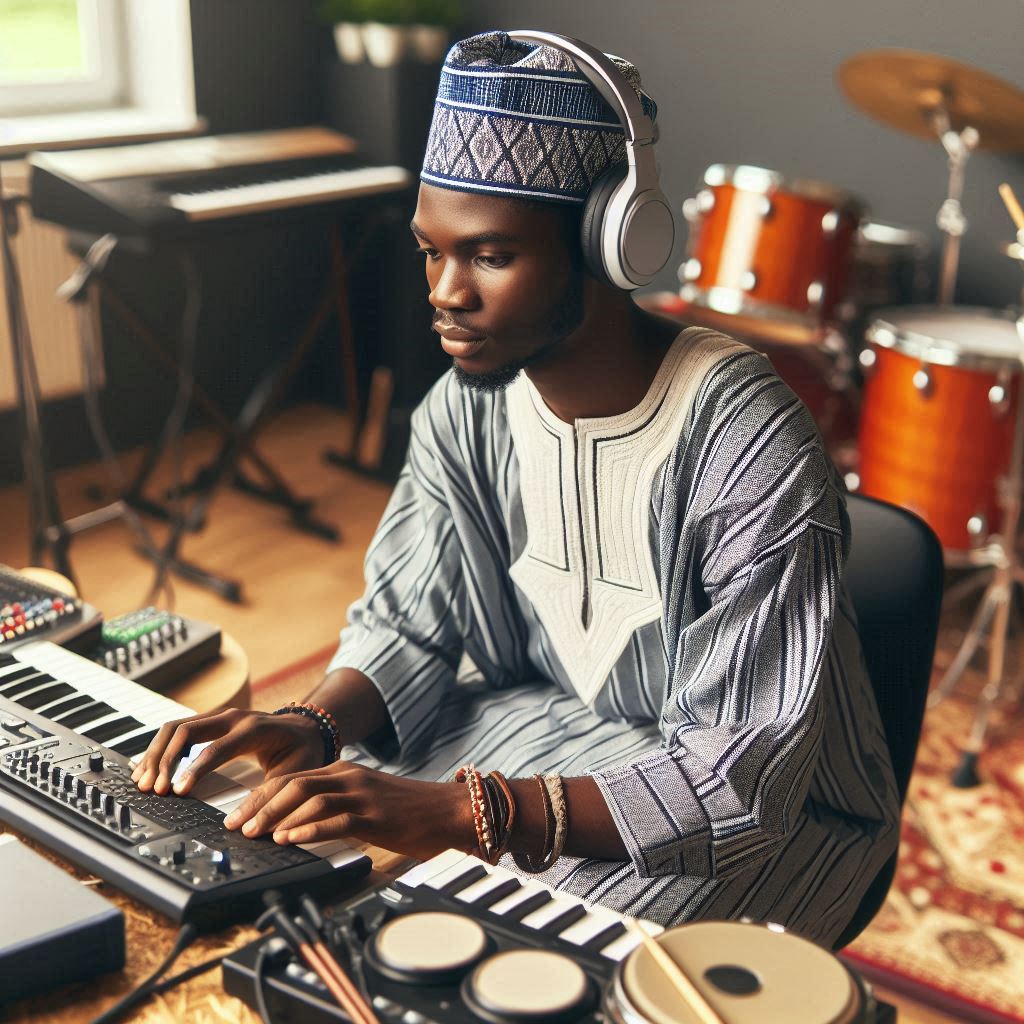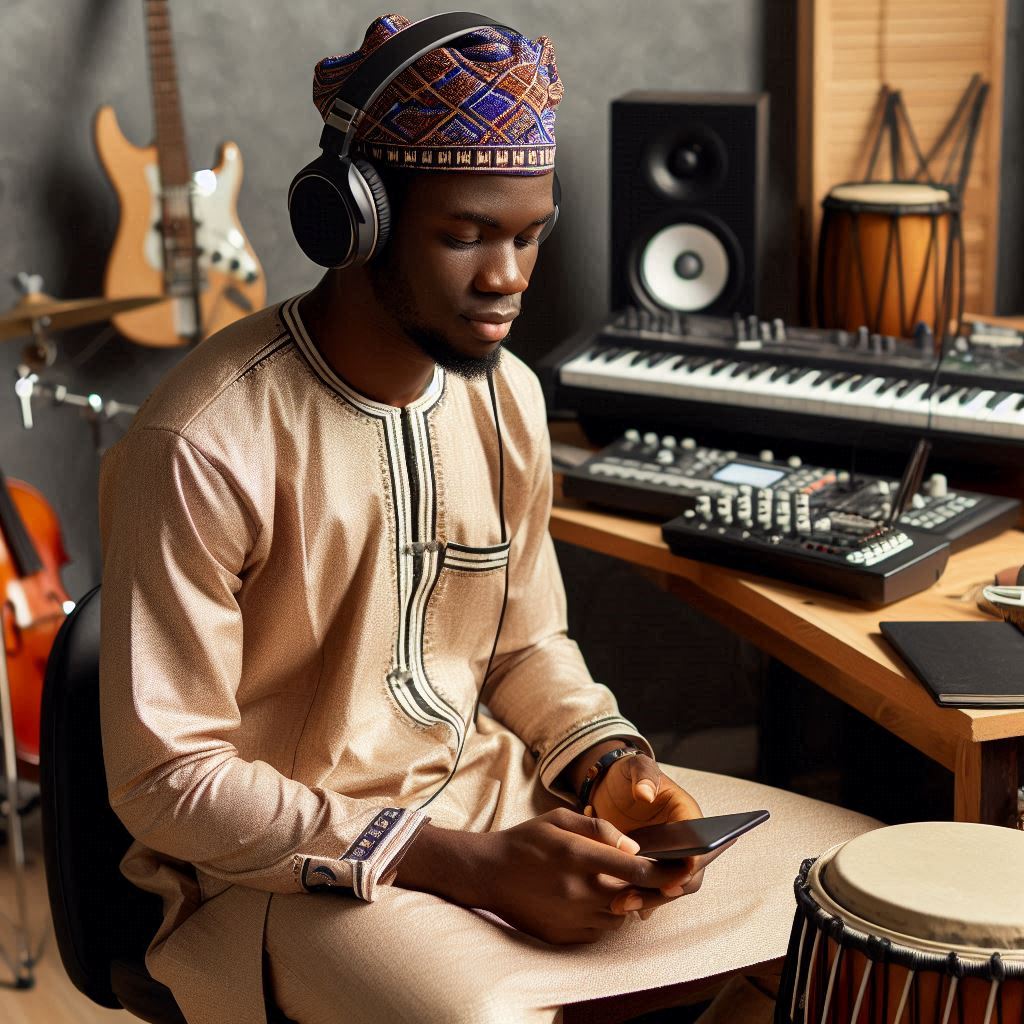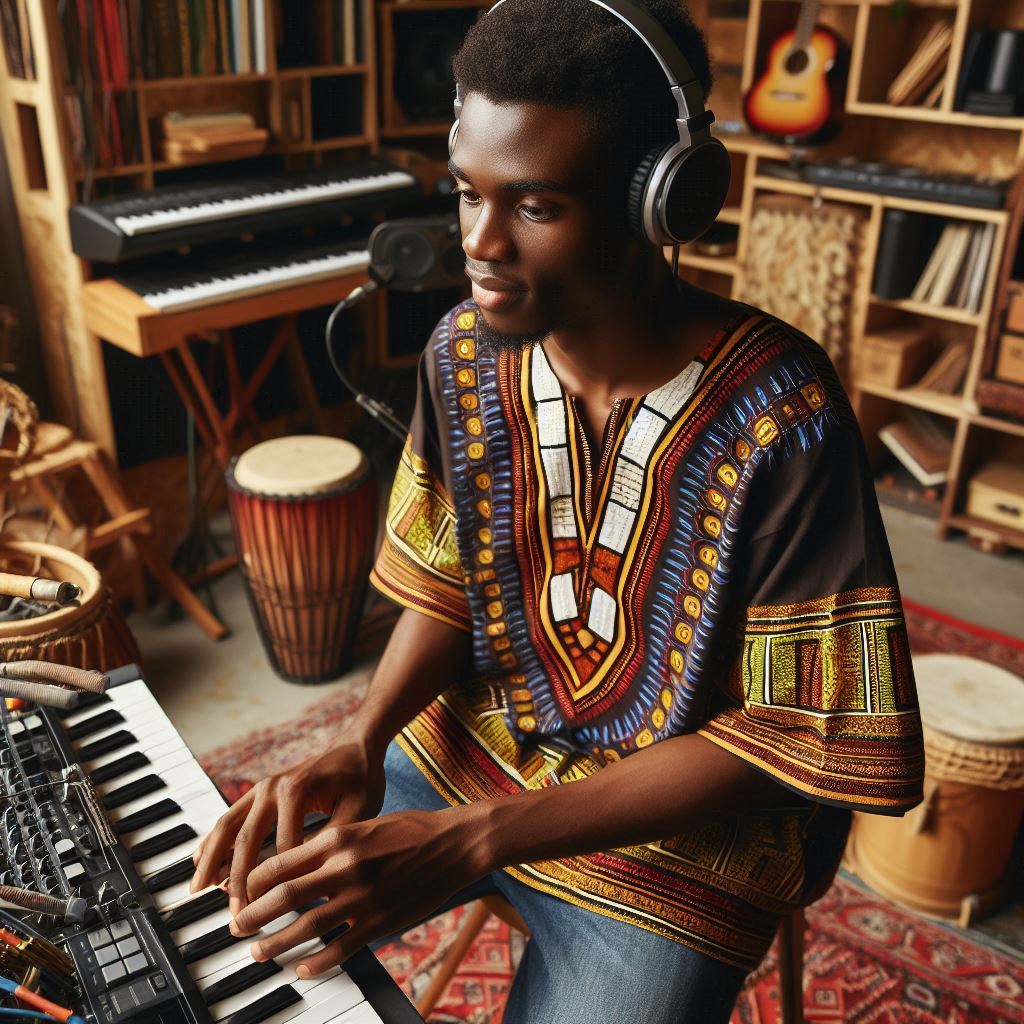Introduction
Exploring the impact of music education in Nigerian society unveils its profound influence on cultural enrichment and societal development. Music education, integral to Nigeria’s cultural fabric, plays a pivotal role in shaping individuals and communities.
Defining Music Education
Music education encompasses the systematic study and practice of music, encompassing theory, history, performance, and composition.
Its significance lies in fostering creativity, critical thinking, and cultural appreciation among individuals.
Overview of Music Education in Nigeria
In Nigeria, music education is structured within formal academic institutions, community programs, and traditional apprenticeships.
It embraces a diverse range of musical genres, from indigenous folk traditions to contemporary styles.
This multifaceted approach reflects Nigeria’s rich cultural heritage and promotes inclusivity in musical expression.
Historical background of music education in Nigeria
The origins of music education in Nigeria
The origins of music education in Nigeria can be traced back to ancient times when music was an integral part of various cultural practices and ceremonies.
Music was used to communicate messages, entertain, and preserve traditions.
Traditional music education practices in various Nigerian cultures
- In Yoruba culture, music education is often passed down through oral tradition, where young individuals learn from older members of the community.
- Hausa culture emphasizes the importance of music in social gatherings and celebrations, with young people learning traditional songs and rhythms from experienced musicians.
- Igbo culture places a strong emphasis on music education as a way to preserve their rich musical heritage, with young people learning traditional instruments and songs from a young age.
Impact of colonization on music education in Nigeria
- During colonial rule, Western music education was introduced to Nigeria, leading to the establishment of formal music schools and institutions.
- Colonization also brought about the adoption of Western musical instruments and notation systems, which influenced the traditional music education practices in Nigeria.
- Despite the influence of colonization, many aspects of traditional music education in Nigeria have been preserved and continue to be passed down through generations.
basically, the historical background of music education in Nigeria is rich and diverse, with a blend of traditional practices and Western influences.
The impact of colonization has shaped the current landscape of music education in Nigeria, but traditional music education practices remain an essential part of Nigerian culture.
Benefits of music education in Nigerian society
Music education in Nigerian society extends far beyond the realm of melody and harmony.
It serves as a catalyst for cognitive development, academic achievement, and personal growth.
Let’s delve into the multifaceted impact of music education on individuals and communities.
Cognitive and Academic Benefits
Music education stimulates various cognitive functions, enhancing memory, attention, and language skills.
Studies show that students engaged in music education often demonstrate higher academic performance in other subjects.
The discipline and focus required for musical practice transfer to academic pursuits, fostering a well-rounded learning experience.
Social and Emotional Benefits
Beyond academics, music education fosters social connections and emotional well-being.
Collaborative music-making promotes teamwork, communication, and empathy among students.
Through ensemble performances and group activities, students learn to appreciate diversity and build lifelong friendships.
Moreover, music serves as a powerful emotional outlet, allowing individuals to express themselves and cope with stress and anxiety.
Contribution to Personal Development and Creativity
Music education nurtures personal growth and enhances creativity in myriad ways.
As students explore different musical genres and styles, they develop a deeper understanding of themselves and the world around them.
Music composition encourages self-expression and innovation, empowering students to share their unique perspectives with the world.
Moreover, the discipline and perseverance required to master an instrument instill valuable life skills such as resilience, problem-solving, and goal-setting.
Essentially, music education in Nigerian society is not merely an extracurricular activity but a transformative force that enriches lives and communities.
By harnessing the cognitive, social, and emotional benefits of music education, we can empower individuals to reach their full potential and contribute positively to society.
As we continue to champion music education, let us recognize its profound impact on Nigerian society and strive to ensure that every individual has access to this invaluable resource.
Read: Prominent Nigerian Sociologists and Their Contributions
Challenges facing music education in Nigeria
When discussing the impact of music education on Nigerian society, it is important to also consider the challenges that music education faces in the country.
Despite the numerous benefits that music education can bring, there are several obstacles that hinder its growth and development in Nigeria.
Lack of proper funding for music education programs
One of the major challenges facing music education in Nigeria is the lack of adequate funding for music education programs.
Many schools do not prioritize music education and as a result, there is a shortage of resources such as musical instruments, sheet music, and recording equipment.
Without proper funding, music education programs struggle to provide students with a high-quality music education experience.
This lack of resources can hinder students’ ability to fully engage in music education and develop their talents to their full potential.
Shortage of qualified music teachers in schools
Another significant challenge is the shortage of qualified music teachers in schools across Nigeria.
Many schools do not have enough music teachers to meet the demand for music education, leading to large class sizes and limited one-on-one instruction.
Without enough qualified music teachers, students may not receive the individualized attention and guidance they need to excel in music education.
This shortage of teachers can also result in a lack of mentorship and professional development opportunities for aspiring musicians.
Impact of cultural and societal attitudes towards music education
The cultural and societal attitudes towards music education in Nigeria can also present challenges for the growth of music education in the country.
In some communities, music education is not seen as a valuable or important subject compared to traditional academic subjects.
This perception can lead to a lack of support for music education programs in schools, resulting in limited opportunities for students to pursue music as a career or creative outlet.
Changing these attitudes and promoting the value of music education is crucial for the continued development of music education in Nigeria.
Generally, the challenges facing music education in Nigeria are significant and multifaceted.
From the lack of funding and qualified teachers to cultural attitudes towards music education, there are many obstacles that must be addressed in order to ensure that music education can thrive and benefit Nigerian society as a whole.
Read: History of Sociology in Nigeria: A Comprehensive Overview

Learn More: Key Economic Theories Explained for Nigerian Students
Gain More Insights: Top Universities for Arabic Studies in Nigeria
Initiatives and programs promoting music education in Nigeria
Showcase Existing Music Education Initiatives
One of the notable initiatives promoting music education in Nigeria is the MTN Foundation Music Scholarship Program.
This program provides scholarships to talented music students to pursue their education in music.
It helps aspiring musicians to develop their skills and reach their full potential.
Another initiative is the NOKIA-Don Jazzy music talent program, which aims to discover and support young musical talents across Nigeria.
The program provides training, mentorship, and opportunities for these talented individuals to showcase their skills.
Role of Government and Non-Profit Organizations
The government plays a crucial role in promoting music education in Nigeria by implementing policies and allocating resources to support music programs in schools.
Non-profit organizations like the Nigerian Music Foundation also play a significant role in providing access to music education for underserved communities.
These organizations collaborate with schools, community centers, and other institutions to offer music classes, workshops, and performances.
They work towards making music education accessible to all, regardless of their socio-economic background.
Success Stories and Impact of Music Education Programs
Music education programs in Nigeria have had a positive impact on local communities by nurturing talent, promoting creativity, and building cultural awareness.
These programs have helped young musicians to develop their skills, gain recognition, and pursue career opportunities in the music industry.
One success story is that of a young musician from a rural community who received music education through a local program and went on to become a successful recording artist.
His story inspired other young people in his community to pursue their passion for music and explore opportunities in the industry.
Overall, music education initiatives in Nigeria are crucial for empowering individuals, promoting cultural diversity, and creating opportunities for aspiring musicians to thrive.
By supporting these programs and initiatives, we can contribute to the growth and development of the music industry in Nigeria.
Read: Sociology Departments in Nigerian Universities
Learn More: Famous Nigerian Actors and Actresses
Delve into the Subject: Mass Communication Internships for Nigerian Students
The role of music education in preserving Nigerian culture
Music education plays a crucial role in preserving Nigerian culture for future generations.
Preserving Traditional Nigerian Music and Dance
- Music education provides a platform for students to learn about traditional Nigerian music and dance forms.
- By teaching the history and significance of these art forms, music education helps keep them alive.
- Students can engage in practical sessions where they learn to play traditional Nigerian instruments.
Incorporating Nigerian Music into the Curriculum
- It is important to include Nigerian music in the curriculum to expose students to their cultural heritage.
- By studying Nigerian music, students gain a deeper understanding of their roots and identity.
- Integrating Nigerian music into the curriculum promotes cultural appreciation and awareness among students.
Promoting Cultural Diversity and Unity in Society
- Music education fosters a sense of unity among students from different cultural backgrounds.
- By learning about diverse music traditions, students develop respect for cultural differences.
- Music has the power to bring people together and bridge cultural divides in society.
Therefore, music education not only enriches students’ lives but also plays a significant role in preserving Nigerian culture and promoting unity in society.
Read: Career Opportunities for Sociology Graduates in Nigeria
You Might Also Like: Mass Communication Curriculum in Nigerian Universities
Learn More: Role of European Languages in Nigerian Business
See Related Content: Criminology Student Experiences in Nigeria
Conclusion
In reflecting on the profound impact of music education on Nigerian society, we’ve explored its multifaceted benefits.
From cognitive development to emotional well-being, music education enriches individuals and communities alike.
It fosters academic achievement, social cohesion, and personal growth.
Emphasizing the importance of music education in Nigerian society is paramount.
It not only preserves cultural heritage but also cultivates creativity and critical thinking skills essential for navigating an increasingly complex world.
By recognizing the intrinsic value of music education, we affirm its role in shaping well-rounded individuals who contribute positively to society.
As we conclude, a call for increased support and investment in music education programs echoes loudly.
By prioritizing these initiatives, we pave the way for future generations to thrive academically, artistically, and personally.
Let us unite in ensuring that every Nigerian has access to the transformative power of music education, thus securing a brighter future for our nation.




